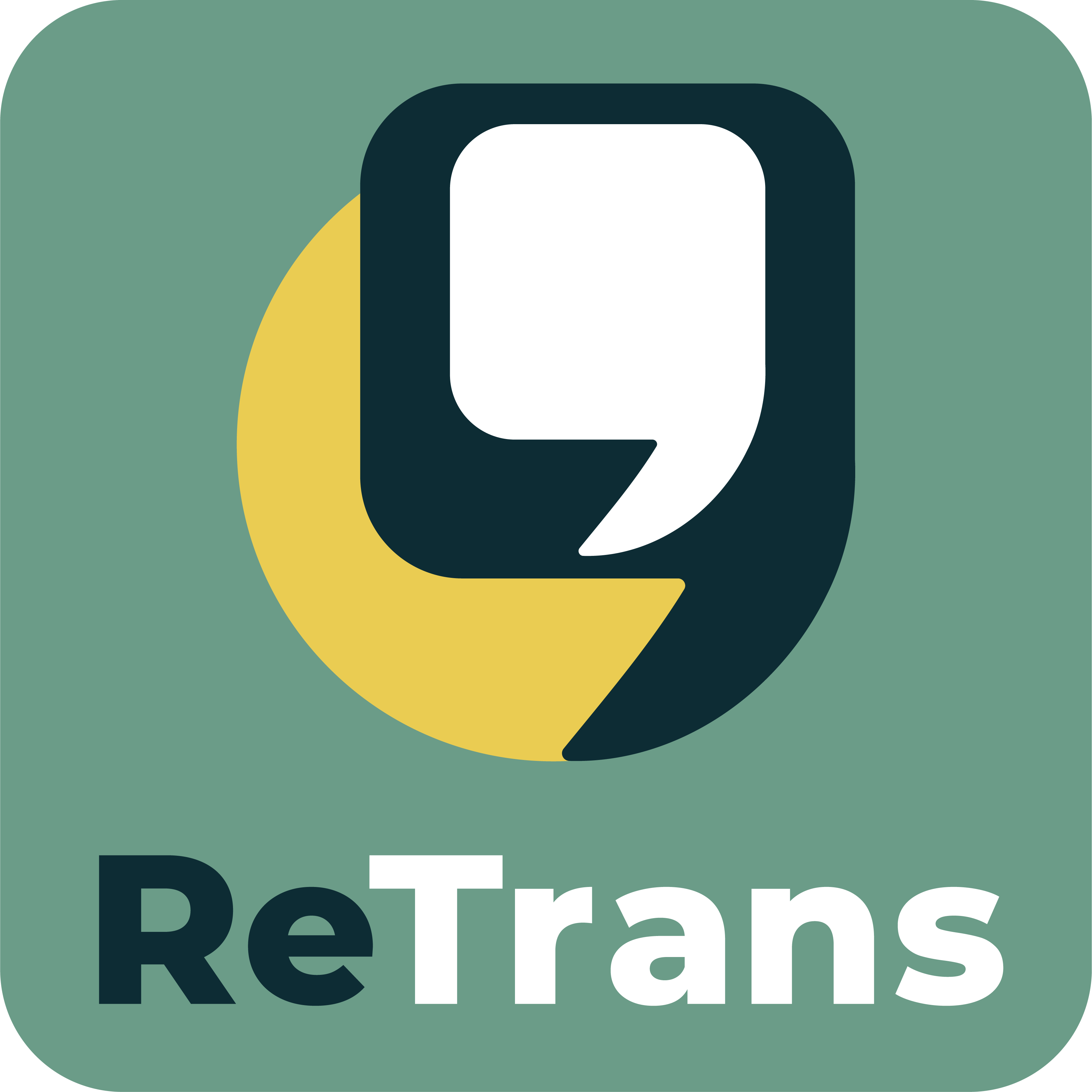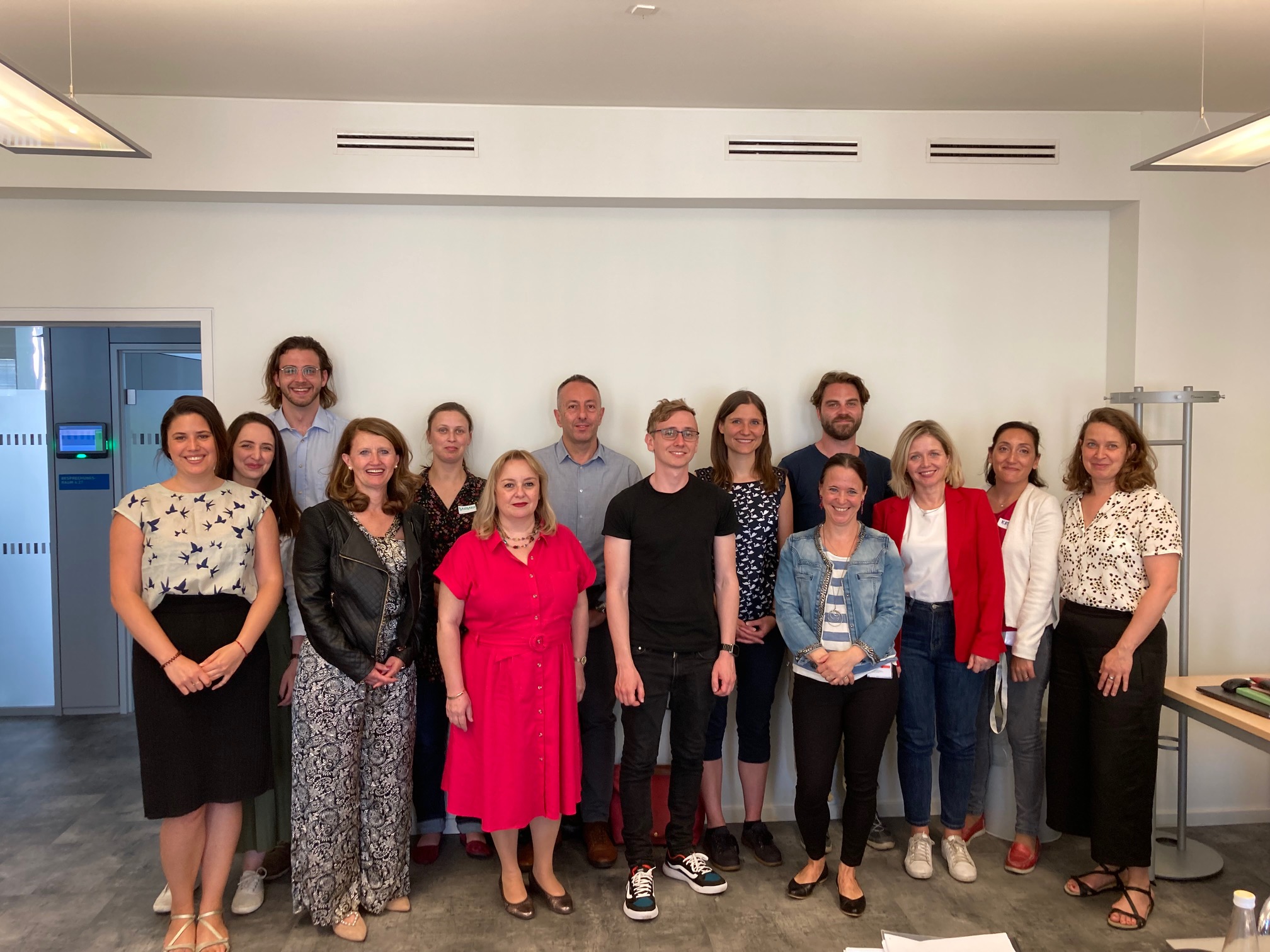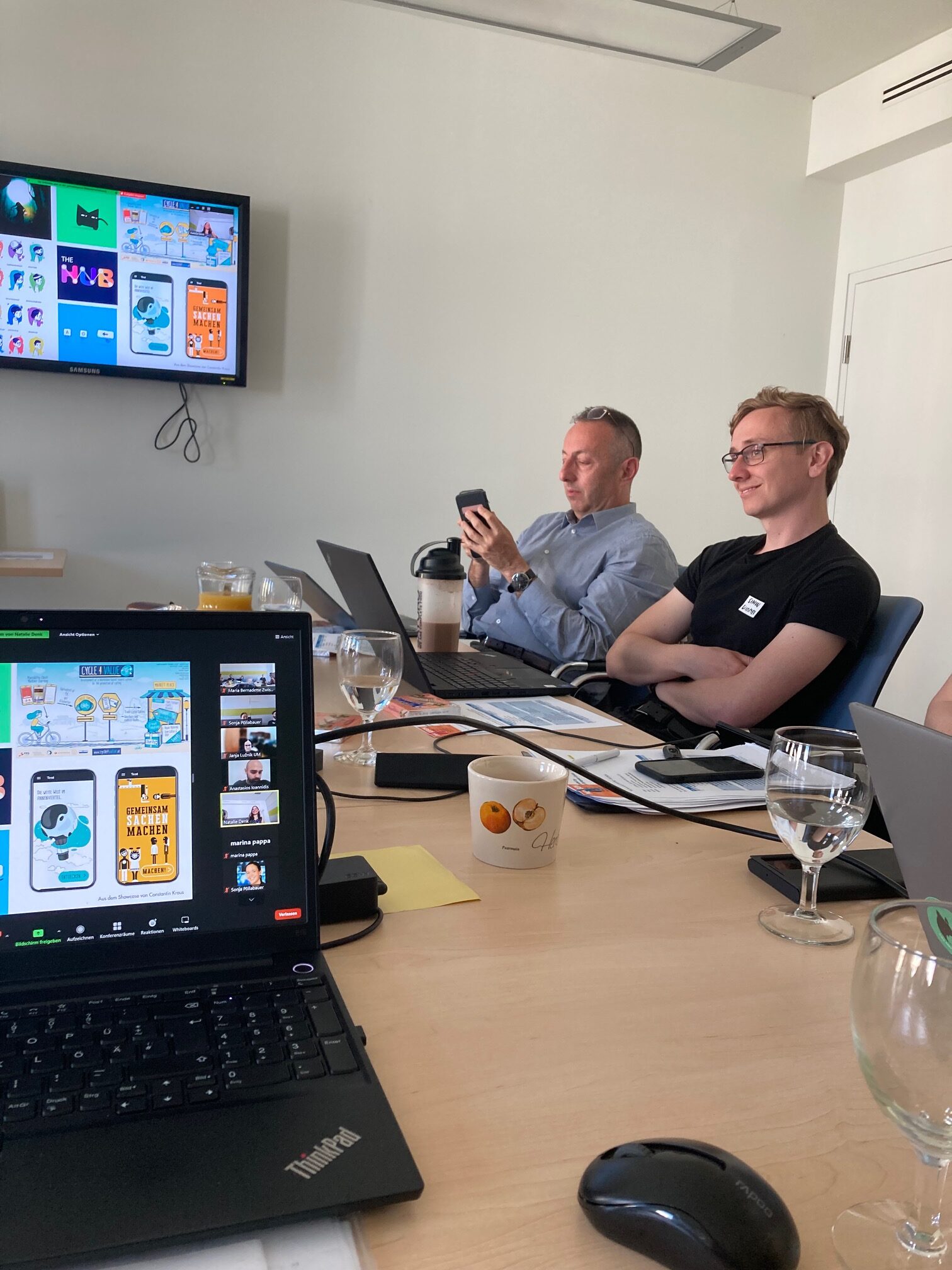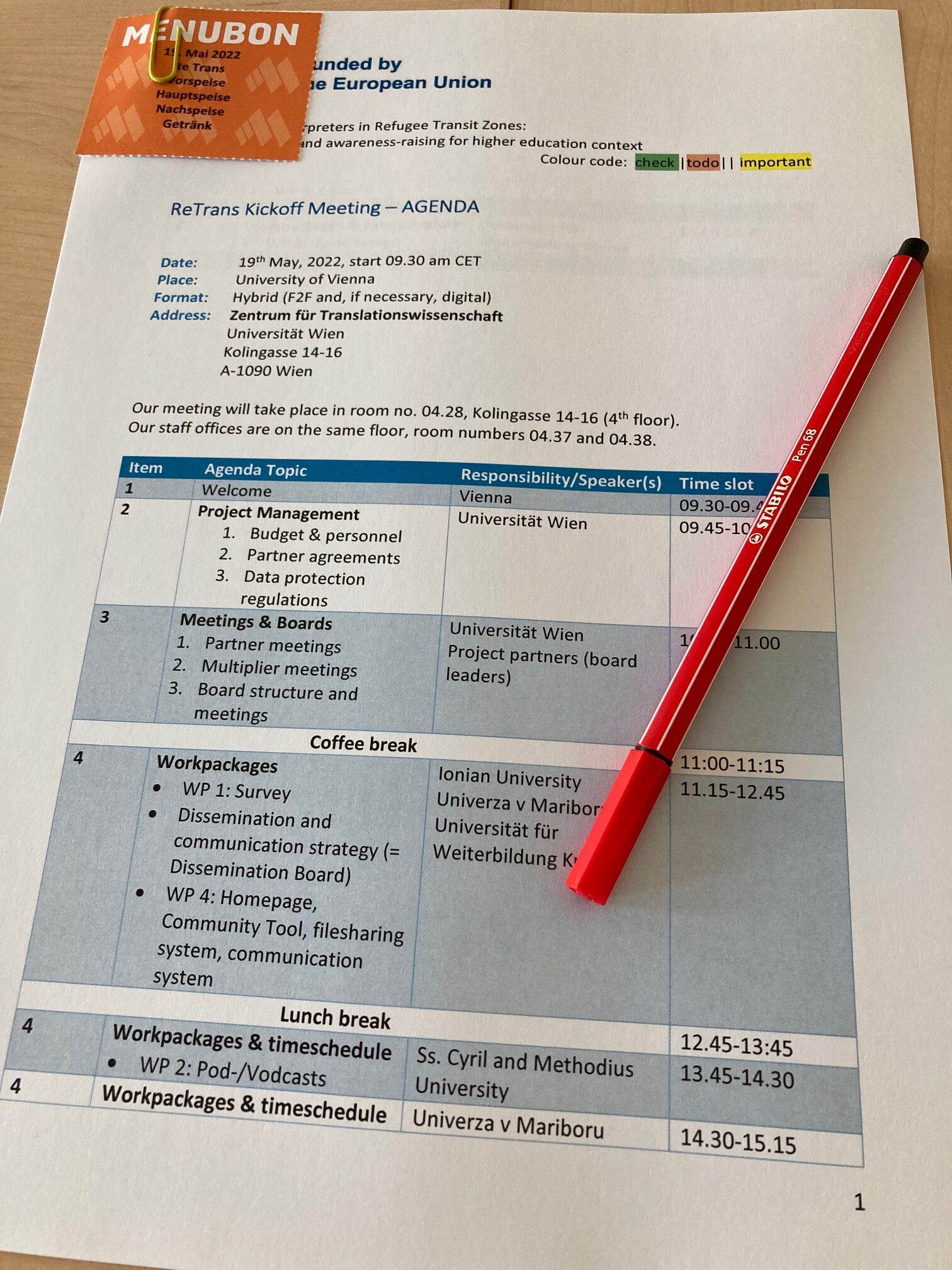Welcome! It’s great to have you here, we were actually just thinking about you. And now you are probably wondering, why? We’ll come to that in a minute, but first things first: let us introduce ourselves. We are ReTrans which is short for Working with Interpreters in Refugee Transit Zones. Born out of funding from the European Union under the Erasmus+ scheme, we are dead set on contributing to capacity building and awareness-raising for higher education contexts. What does this actually mean, you are wondering? Good question! Bear with us on that one, we are going to cover this step by step.
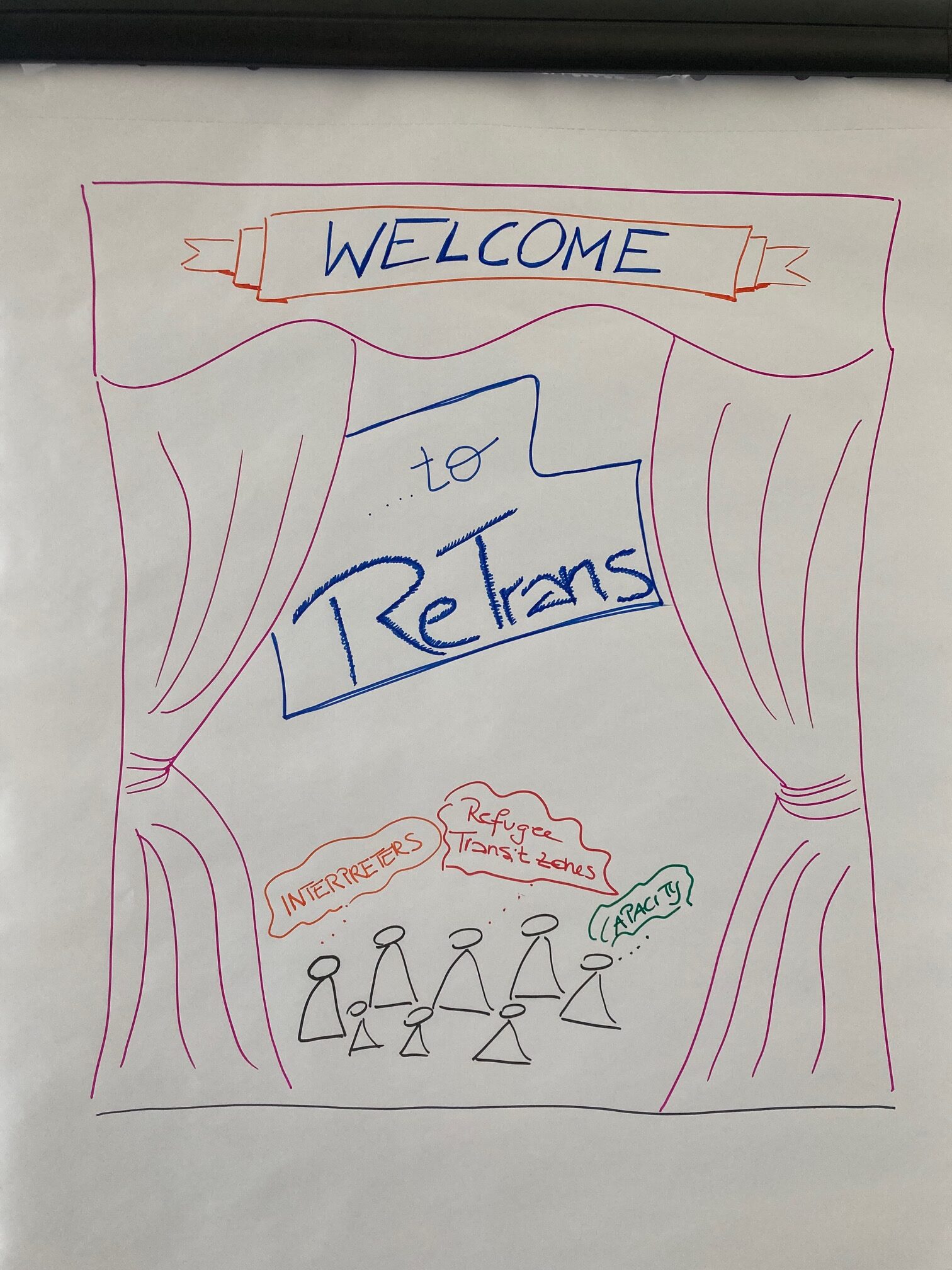
Getting familiar with the workings
Honestly, there couldn’t be a better time to get to know each other. As a third-party-funded research project, ReTrans saw the light of day actually not so long ago, specifically on May 19th, 2022. It calls five universities located in four different European countries along the Balkan route its home. This setup brings over 20 Interpreting, Translation, and Game Studies scholars beginning from May 2022 all the way through April 2024 together, collaboratively working on one specific topic: interpreting in transborder refugee transit zones. What are we planning on doing, you ask? Well, the short answer is, developing media-supported and game-based teaching material for interpreter education and training. For those of you interested in the long answer though, don’t worry we’ve got this one covered too! The doors to the workings of the ReTrans project factory will be open for you. Through this blog and other ReTrans communication channels you’ll have front row seats to different stages of the production process ReTrans is passing through when developing educational tools and training materials on interpreting in transborder migration zones.
Quick Facts
ReTrans
EU-funded Erasmus+ project
…bringing together 5 universities
from 4 countries
between May 2022 – April 2024
to produce
podcasts, videocasts, games & more on
interpreting in transborder refugee transit zones
for education and training.
Let’s go-go-goals: talking about educational commitments
Did you ever find yourself in a situation where you wanted to continue working on an interpreting setting, a technique or an ethical aspect beyond classroom walls or the institutional halls of an interpreting encounter? When talking about dialogue interpreting, accomplishing this in a “close-to-authentic” manner seems rather difficult. Coming up with multiparty-encounters across various institutional realities, critically questioning complex decision-making-processes, and reflecting upon their ethical implications completely on one’s own is quite a demanding task. But classroom hours are only finite in time and number and some practitioners might not necessarily be able to access respective places of learning whether those are vocational training centers or tertiary educational institutions. This nature of classroom teaching – limited in access, time and resources – coinciding with the lack of easily-accessible training material outside “traditional” training environments preoccupied ReTrans members long before they joined forces in this project. So when sitting down to plan our collaborative engagement for the upcoming months and years, careful consideration was given to aspects impinging on knowledge transfer across different environments when trying to reach heterogeneous learner profiles. From ReTrans’ point of view, further training material complementing existing resource pools had to be sustainably available on an open source basis irrespective of geographical location or institutional affiliation of people. This in turn meant that the educational tools to be developed had to be efficient and easy in use, e.g. via smartphone or tablet, serving the educational needs of (classroom) students, (experienced) practitioners in the field, and teachers/trainers alike. Based on these premises, ReTrans committed to forging new paths in creating educational content which directly lead us in the arms of Game-based Learning and Media Education.
Covering ground through stocking up: podcasts, vodcasts, games & more
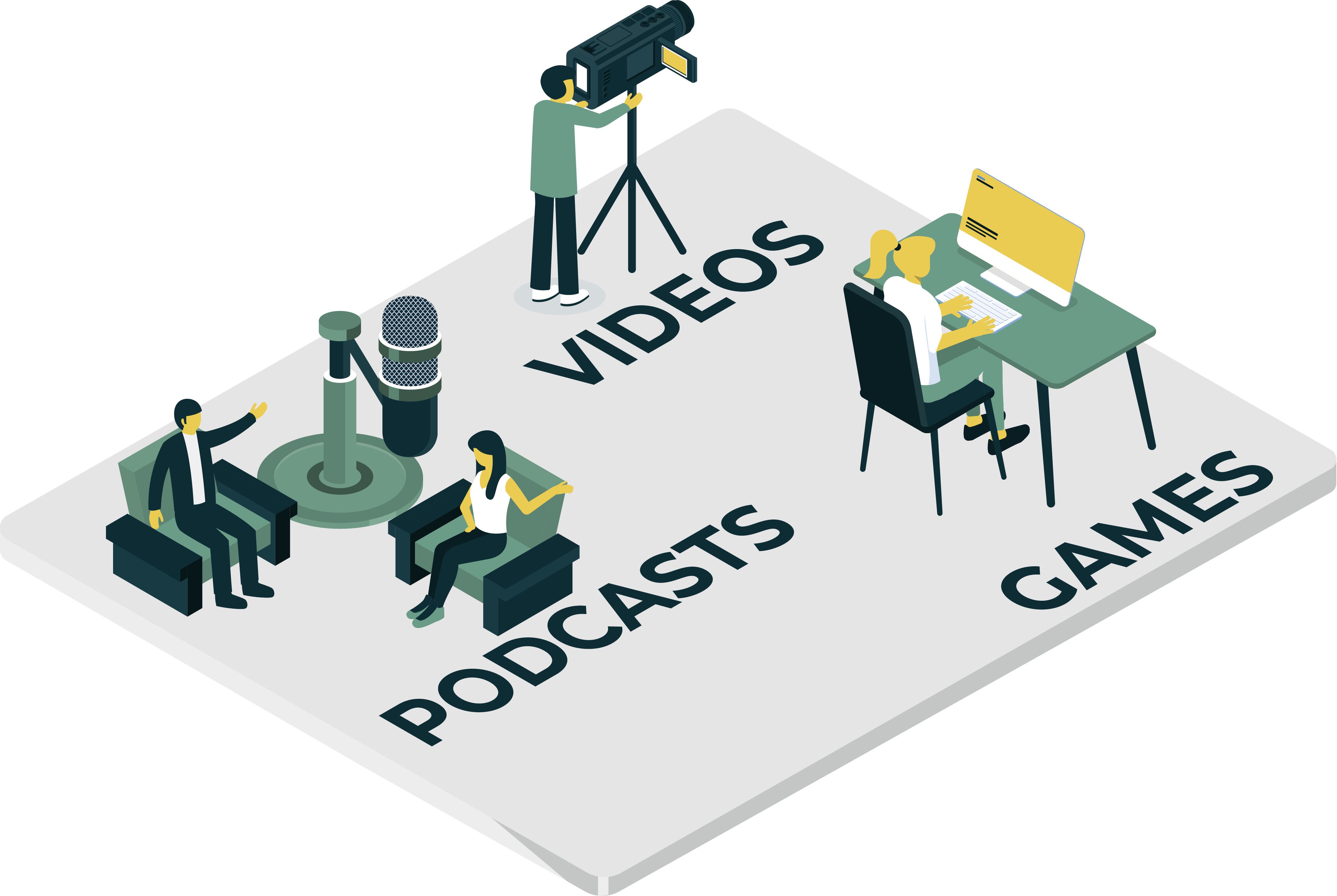
Let’s take a moment to trace the geographically spread out partners of ReTrans. Starting out at the Greek island of Corfu, moving on to Skopje, capital city of North Macedonia, then further passing the second largest city in Slovenia, Maribor, ending all the way up in northern Austria, namely Krems and Vienna: ReTrans partners make up a mixture of reception and host countries along a major European migration route taken by people fleeing to Europe every day. While some partners therefore may display a stronger involvement in initial contact when refugees arrive in Europe, other countries are passed through by people on their transit up north. This unique project setup opens a window for exchange on current needs and shifting realities as they are being experienced by people (temporarily) living in and/or passing through refugee transit zones.
Serious about our intention to offer autonomous educational opportunities for learners across diverging learning environments, ReTrans opted for developing a series of tailor-made educational tools in the form of podcasts, educasts, videocasts, and games. Nevertheless, providing ample occasions for exchange among everybody affected by and interested in interpreting in transborder migration zones whether them being interpreters, students, teachers/trainers or clients seemed of equal importance to us. ReTrans is therefore planning a range of events such as workshops, round tables, a lecture series and an interdisciplinary course taking place in the upcoming two years.
In line with ReTrans’ intention to support interpreters, teachers/trainers and students alike in pursuing educational commitments, the entire set of educational tools developed within the project will be made available open source, freely accessible here on this website upon release. Maybe you are a practicing interpreter aspiring to familiarize yourself with the field-specific challenges, strategies, and best-practices pertaining to interpreting in transnational migration zones? Then our podcast series and videocasts with first-hand accounts of your fellow colleagues as well as (institutional and individual) clients discussing challenges in this specific field while also hinting to possible strategies to overcome them, might prove worthwhile listening to.
Those among us here still working eagerly towards becoming fully-fledged interpreters might be keen on practicing ethical decision-making competences. ReTrans games based on narrative storytelling will guide you step by step through specific interpreting encounters, allowing you to move through an unfolding communication situation based on the decisions you’re taking along the line – this way your learning experience doesn’t have to stop when class is over!
And for you as teachers/trainers, what does ReTrans have in store for you? Maybe you are contemplating how to adequately convey the setting-specific workings of transborder migration zones to students in your classroom? Or the lack of suitable material when offering user-training-workshops on “working with interpreters” for institutional clients just came to your mind? For this you might want to stay posted on ReTrans educasts on “working with interpreters in refugee transit zones” or join us by attending our upcoming lecture series that may spark one or more idea(s) regarding education on interpreting in refugee transit zones.
Staying connected? Channeling communities through communication
You want to know when you’ll finally be able to click through our podcast episodes, when the user-training videos will be available and what’s up next on the ReTrans event agenda? Stick with us on social media #ReTransInterpreting and join our ReTrans community, this way you’ll be the first to read about newly released training materials, upcoming events like workshops, lectures or round tables, and innovative training practices discussed by ReTrans community members on our discord channel – can’t wait to meet you all there!

Being naturally curious, we now want to know more about you. It’s your turn – let us know why you are here and what you’d be interested in knowing more about.
Author: Maria Bernadette Zwischenberger (University of Vienna, Centre for Translation Studies)
